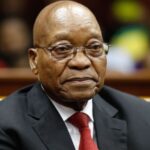Iran has announced it will continue engaging in dialogue with the International Atomic Energy Agency (IAEA), even as tensions with the global nuclear watchdog remain high following recent conflicts and political standoffs.
Foreign Ministry spokesperson Esmaeil Baghaei said in a statement that a fresh round of discussions with the IAEA is scheduled “in the coming days.” He emphasized that, despite strained relations, Tehran maintains a direct line of communication with the agency and intends to keep diplomacy on the table.
The announcement follows a turbulent summer marked by violence and heightened mistrust. In June, during a 12-day conflict between Iran and Israel, U.S. and Israeli forces carried out coordinated strikes on Iran’s nuclear infrastructure. A day after the ceasefire on June 25, Iranian lawmakers voted unanimously to suspend cooperation with the IAEA, effectively limiting inspections to cases approved by the country’s Supreme National Security Council.
Baghaei’s remarks suggest that while Tehran remains defiant, it is not closing the door on international oversight altogether. “Our cooperation with the agency is conditional, but dialogue will continue,” he said.
Also Read; Trump-Putin Summit Seeks Ukraine Conflict Resolution
Western nations, however, are growing increasingly impatient. The so-called E3—Britain, France, and Germany—have warned that unless Iran resumes full compliance with its nuclear obligations, they may seek the reimposition of sanctions that were lifted under the 2015 Joint Comprehensive Plan of Action (JCPOA). For Europe, the talks are seen as one of the last opportunities to revive nuclear diplomacy and prevent further escalation in the Middle East.
Analysts note that Iran’s approach reflects a balancing act. On one side, the government is under pressure from hardliners who argue that the IAEA cannot be trusted after its critical report earlier this year allegedly paved the way for the June strikes. On the other, pragmatists within Tehran see continued engagement as vital to avoiding deeper isolation and stabilizing an economy already battered by conflict and sanctions.
The coming weeks are expected to be critical. If talks between Iran and the IAEA collapse, Tehran could face renewed penalties, further alienation from the international community, and the risk of another regional flare-up. For now, however, Iran is signaling that despite its anger and restrictions on inspections, the diplomatic door is still open.







